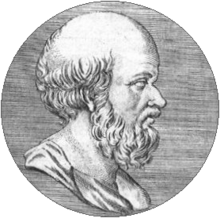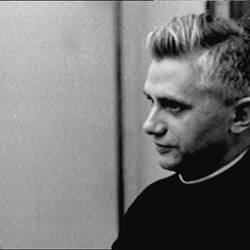By far the most irritating part of a pending papal election is the increased coverage the Church receives in the editorial pages of the newspapers and on evening news programmes.
Those who at all other times positively revel in their profound ignorance of the Church’s teaching suddenly begin opining with pontifical authority on ‘the challenges facing the Church’ or, more often, ‘what the next pope must do’ to stave off ecclesial cataclysm.
When a token effort is made to bring in someone with some actual learning on the subject, inevitably they trot out the same ‘progressive voices’ from schismatic universities; a chorus line of feminists and failed priests, of mad hair and bad teeth, of eccentric knitwear and disappointing breasts.
The same hackneyed themes are canted over and again: the next pope must engage with the issue of “wimin’s ordination” and at last repeal the absurd teachings on homosexuality. Diarmaid McCullough, offering to meet reality halfway, has predicted one more ‘traditionalist pope’ before an ‘explosion’ in the Church.
The shrewish insistence on what the Church must do is enough to drive one mad.
Refreshingly, this time around there have been some voices on sanity and orthodoxy trying to make themselves heard. Brave souls like Tim Stanley at the Telegraph and Ashley McGuire at the Washington Post have both posted coherent rebuttals to the nonsense hogging the print pages. It’s a nice by product of the ‘e-‘ era that people like them can offer some counterpoint under their paper’s banner head.
They offer a patient, if justifiably annoyed, explanation that the teaching of the Church, and the election of Peter’s successor, cannot be viewed, dissected and discussed through the prism of politics; the only mindset secular commentators can think to use. They lay out the basic differences between political theory and social philosophy on the one hand, and faith, revelation and Divine Law on the other. Both give an excellent beginner’s guide to engaging with Catholic issues at this time but I fear both will fall on deaf ears.
From what I have observed over the years when speaking to atheists, agnostics, well meaning Protestants and even (Lord preserve us) Guardian journalists, it’s not that they don’t understand the role of objective, unchanging truth in Catholic teaching – that is the very thing that upsets them.
In a culture which has broken free of any anchoring principles, religious or other, all that is left is an “I’ll show you mine if you show me yours” comparison of truths. But these ‘truths’ are, as the (still current) pope has demonstrated, relative and shifting. Those who still claim for themselves the fruit of the tree of knowledge internalise every discernment of right and wrong. Human discernment alone is a judgement on incomplete knowledge. As a result, moral relativists (no pejorative intended) have to shift their footing in the face of changing circumstances, experience and the competing truths of those around them, ending up in a complicated bull fight with the realities of life.
Their best defences against getting caught on the horns are the secular mottos of ‘dialogue’ and ‘mutual respect’, but the former is disingenuous and the later a sham.
Two opposed points of view cannot be equally true and, if you actually hold to your own ‘truth’ with any kind of sincerity, you can never truly respect another’s falsehood or error. In the light of this, dialogue is the mechanism by which you either begin to try to dismantle the other’s ‘truth’ under a flag of truce or engage in mutual disarmament until neither of you really believe in anything.
This is why the Church inspires such rage. By asserting the reality of the Truth, which exists outside us, it rejects the premise of hypocrisy implied by ‘mutual respect’ and, by refusing to engage in ‘dialogue’ on issues which it holds as settled and certain, it denies those outside the Truth the opportunity to diffuse its importance or reverse its implications. Instead of a bull which can be danced around in different directions to suit the need, truth becomes a brick wall which there is no getting past.
I have have seen this illustrated throughout my education. As an undergraduate studying under the much quoted Dr Tina Beattie, the teaching of John Paul the Great that priestly ordination was reserved by Divine Law to men alone (Ordinatio Sacerdotalis) was spoken of with especial bitterness not because of the teaching itself but because it was declared definitive and not open to question or discussion, slamming the door on a cultural war of attrition from within the Church.
It is a great shame that the source of serenity in faith, the certain nature of truth, the rock we cling to in times of trouble and confusion, is encountered by others only as the solid surface against they collide in their disorientation.




